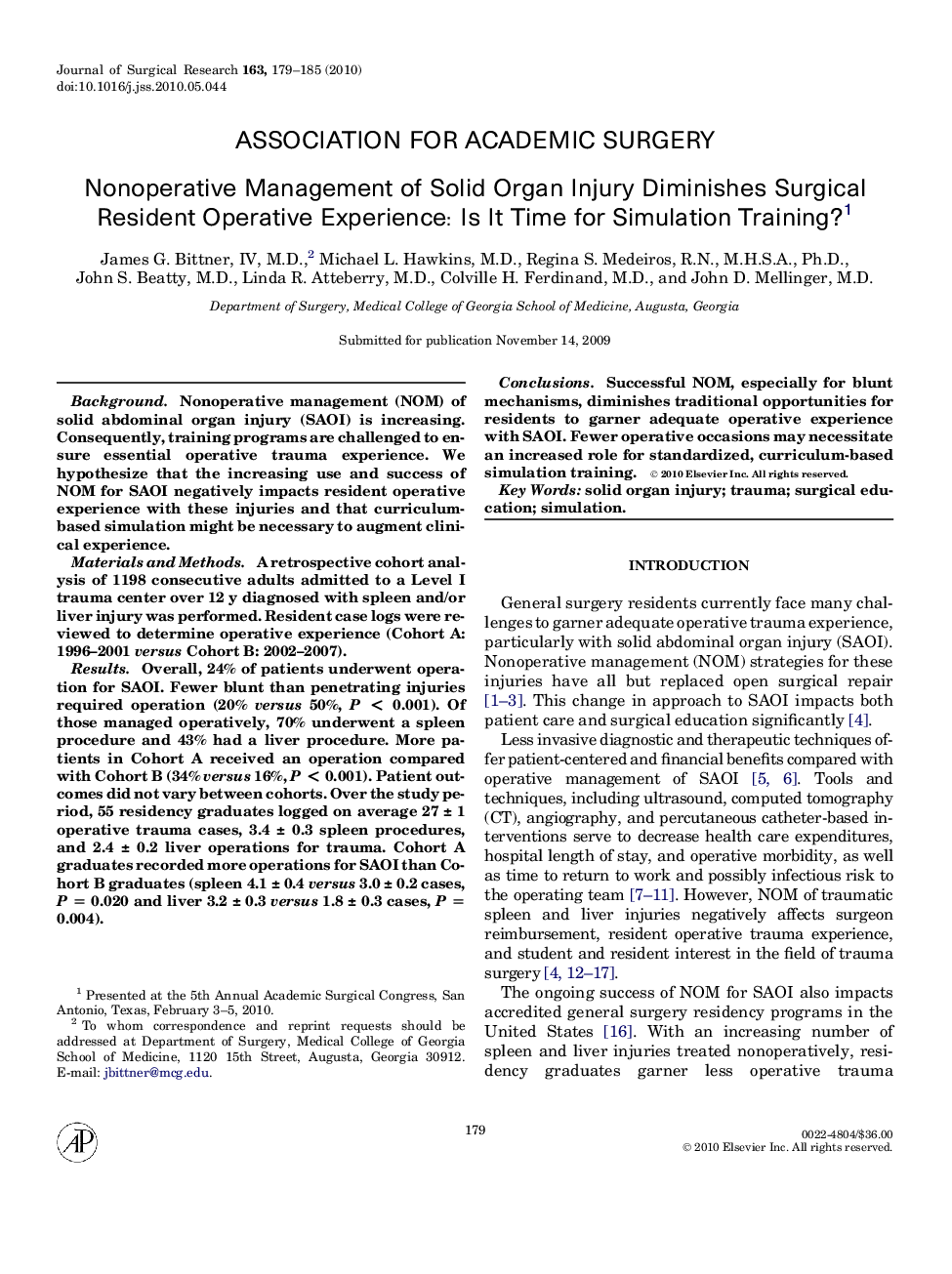| Article ID | Journal | Published Year | Pages | File Type |
|---|---|---|---|---|
| 4303013 | Journal of Surgical Research | 2010 | 7 Pages |
BackgroundNonoperative management (NOM) of solid abdominal organ injury (SAOI) is increasing. Consequently, training programs are challenged to ensure essential operative trauma experience. We hypothesize that the increasing use and success of NOM for SAOI negatively impacts resident operative experience with these injuries and that curriculum-based simulation might be necessary to augment clinical experience.Materials and MethodsA retrospective cohort analysis of 1198 consecutive adults admitted to a Level I trauma center over 12 y diagnosed with spleen and/or liver injury was performed. Resident case logs were reviewed to determine operative experience (Cohort A: 1996–2001 versus Cohort B: 2002–2007).ResultsOverall, 24% of patients underwent operation for SAOI. Fewer blunt than penetrating injuries required operation (20% versus 50%, P < 0.001). Of those managed operatively, 70% underwent a spleen procedure and 43% had a liver procedure. More patients in Cohort A received an operation compared with Cohort B (34% versus 16%, P < 0.001). Patient outcomes did not vary between cohorts. Over the study period, 55 residency graduates logged on average 27 ± 1 operative trauma cases, 3.4 ± 0.3 spleen procedures, and 2.4 ± 0.2 liver operations for trauma. Cohort A graduates recorded more operations for SAOI than Cohort B graduates (spleen 4.1 ± 0.4 versus 3.0 ± 0.2 cases, P = 0.020 and liver 3.2 ± 0.3 versus 1.8 ± 0.3 cases, P = 0.004).ConclusionsSuccessful NOM, especially for blunt mechanisms, diminishes traditional opportunities for residents to garner adequate operative experience with SAOI. Fewer operative occasions may necessitate an increased role for standardized, curriculum-based simulation training.
